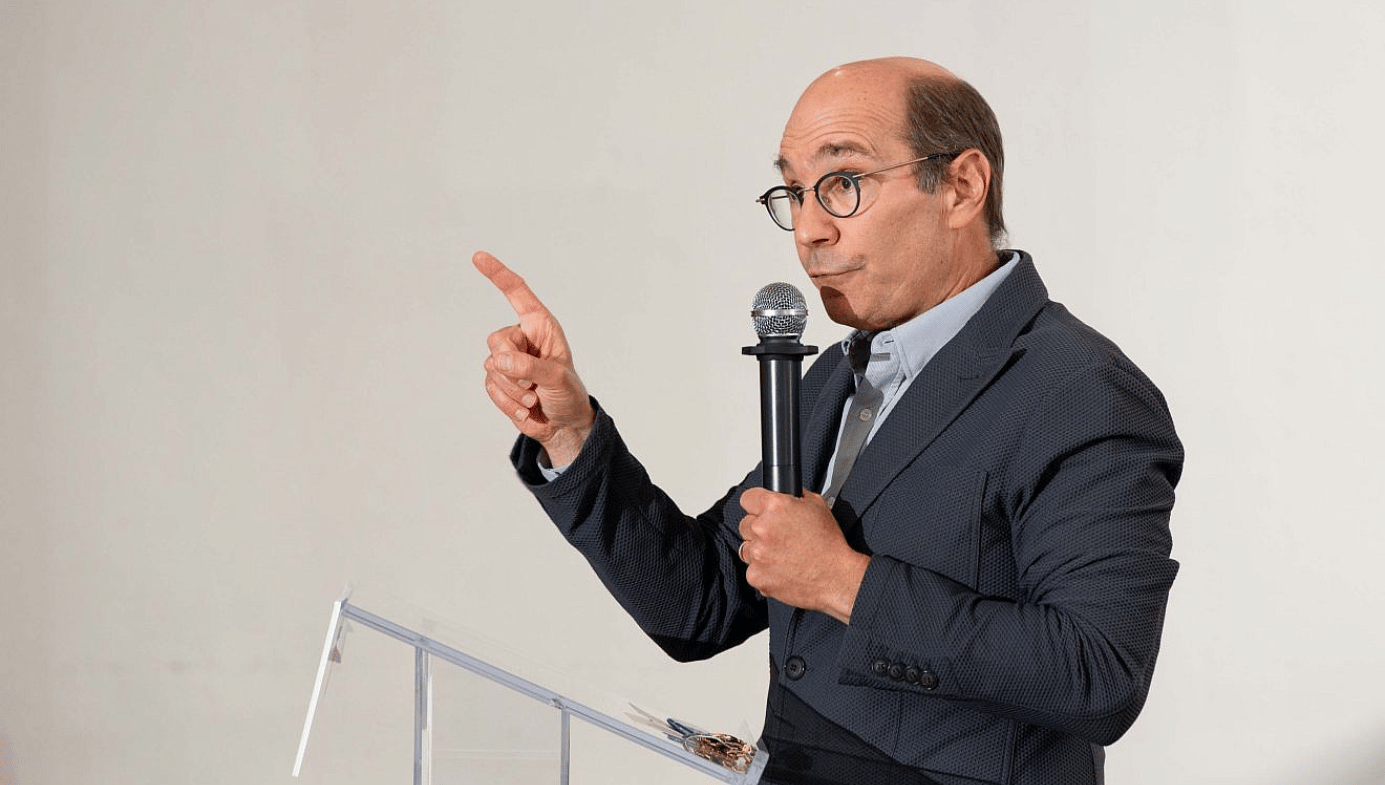Israel
How the Pro-Palestine Movement Hijacked the Civil Rights Movement
Gil Troy on how the pro-Palestinian movement has distorted the legacy of civil rights—and the consequences for Zionism and America’s Jewish community.

Historian Gil Troy delves into the destructive nature of the Palestinian movement and its hijacking of symbols and language from the civil rights movement. His conversation with Paresky also highlights the regressive progressivism and illiberal liberalism that has infiltrated campuses and the education system, leading to the propagation of antisemitism and the erosion of core values. It emphasises the need to rebuild a language rooted in genuine liberalism and conservatism to counteract this distortion.
Their conversation covers various topics related to the challenges faced by universities, the distortion of narratives around Israel and the United States, and the difference between Islam and Islamism.
Gil Troy emphasises the need for critical thinking and understanding the complexity of these issues. He also highlights the dangers of ignoring the threat posed by Islamist ideologies and the importance of holding them accountable.
Gil Troy: How could it be that the civil rights movement, which was nonviolent, constructive and deeply American, has allowed the Palestinian movement, which is so addicted to terror and so anti-American, to steal and hijack the symbols of the civil rights movement?
African Americans, both from the far left and from the far right, have always been very careful not to let people come in and steal their symbols. When Black Lives Matter came out and a university president said, “All lives matter,” she was almost forced to resign because they said, “No, no, no, you’re not understanding the uniqueness of our cause.” That protectiveness somehow, when it comes to the Palestinian movement, falls apart.
We saw this around George Floyd. The Palestinian movement literally went in and used all the symbols of the chokehold, the knee, saying that we are one. It’s actually been very destructive to Zionism on campus and to the American Jewish community. The American Jewish community worships progressives and worships the civil rights movement and is so proud of the American Jewish role in the civil rights movement. Then these people come in and literally distort history and steal the symbolic power of one of the most sacred and effective movements in American history.
Pamela Paresky: That sort of paradigm is not about civil rights. Can you say more about what that’s like now?
GT: I have a problem. I’m an American historian. So I read Martin Luther King and I try to understand what was his power. Now people like to say, “Oh, the United States is systemically racist and there’s so much racism today,” and I don’t diminish the suffering that many individuals endure but we cannot compare the racism of today, as awful as it is, with the racism of the 1950s and the 1960s. I go back to the 1950s and the 1960s, and I understand how did it work. Martin Luther King was very careful. The civil rights movement was very very careful to be non-violent but also to be deeply American. Martin Luther King invokes the Constitution, he invokes the Declaration of Independence, he invokes an Americanism and is basically saying to America “Live up to your ideals.”
What we’ve seen is a nihilism in the African-American movement, not all over. And for example, the middle-class blacks in South Carolina who elected Joe Biden in the South Carolina primary showed that the heart of black America is still very much in sync with Martin Luther King’s values. But there’s a radical antiracism which brooks no dissent, which says if you don’t agree with our agenda completely, you are not just an antiracist, but you are racist.
Part and parcel of this indoctrination and this new orthodoxy is that Palestinianism is central to their cause. I think it’s a distortion of the civil rights movement. I think it’s a distraction from the important work that still needs to be done in the civil rights movement. It also hurts America because we’ve seen again and again in the attacks on the White House, the Lincoln Memorial, the Democratic National Committee, LAX, and JFK airport during Christmas time, that the pro-Palestinian movement today is deeply anti-American and why would the civil rights movement want to be a part of that?
PP: It seems like the pro-Palestinian movement has moved away from being actually pro-Palestinians and has become really just a front for being anti-Israel or even pro-Hamas. Is that how you see this?
GT: This is the great tragedy of the Palestinian movement.
Before we get to today, let’s go back 30, 40, 50 years ago. Again and again, rather than seeking compromise, again and again, rather than seeking a constructive approach, the Palestinian nationalists have used the Palestinian people to push an aggressive agenda, which is against compromise, against peace, against living with Israel. That’s why Oslo blew up. That’s why Ehud Olmert’s very generous series of offers to Mahmoud Abbas in 2007 and 2008 blew up because again and again the leaders of the Palestinian movement don’t want a solution that includes Israel. They don’t want a two-state solution. I saw a recent poll that shows that 89 percent of the Arab world rejects Israel’s existence.
Now we look at today and we see it’s gotten even worse. Now, we have two problems.





